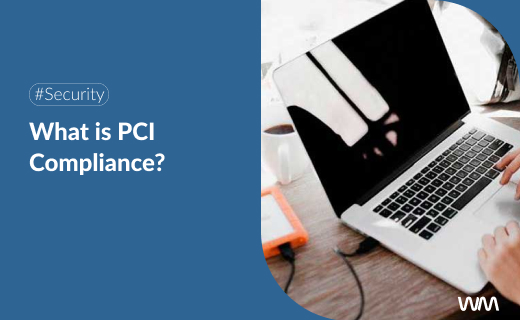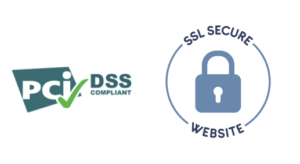In today’s digital age, it’s undeniable that online shopping has become a prevalent habit in society, as evidenced by the staggering statistics. In 2020, a whopping 90% of the global population reported engaging in online purchases, resulting in nearly $4.2 trillion in digital sales revenue, a figure that has been steadily increasing in subsequent years (Source: Statista).
Whether it’s through credit card payments, online product purchases, or the utilization of financial services on the web, ensuring the security of transactions is paramount. Enter PCI DSS (Payment Card Industry Data Security Standard), which addresses the critical need to enhance consumer security in the online realm.
If you’re keen on delving deeper into what PCI DSS entails and how obtaining this certification can significantly bolster the security and prosperity of your business, while discovering how Wannme can assist you in this endeavor, continue reading our blog!
Demystifying PCI DSS and Its Impact on Your Business
PCI DSS stands as a certification encompassing a set of requirements and controls aimed at safeguarding credit card information and preserving the confidentiality of customer data during digital transactions.
This international security standard was established by major players in the payment card industry, including Visa, Mastercard, American Express, Discover, and JCB International, with the primary goal of fortifying online payment security, mitigating fraud risks, and averting payment data breaches.
Therefore, if your business handles credit card data, obtaining PCI DSS certification is paramount. Not only does it enhance customer trust, but it also streamlines compliance with regulations, standards, and other security prerequisites, mitigates financial losses, and unlocks new business opportunities.
Deciphering PCI Compliance: What You Need to Know
PCI Compliance refers to adhering to standards devised to shield payment card data throughout and following a digital transaction.
For instance, an e-commerce venture must comply with PCI Compliance; failure to do so would render it ineligible to process credit cards.
Given the stringent requirements of PCI compliance regulations, online retailers often overlook this aspect, opting to delegate it to specialized entities responsible for installing payment gateways. These gateways are mandated to comply with PCI standards to process Visa or Mastercard transactions, as highlighted in a quote from Ecommerce Photography.
This is precisely where Wannme comes into play, offering the convenience of compliance through seamless API integration.
Understanding the Requirements
There are 12 specific requirements that must be met to ensure the protection of payment card data:
Deploy firewalls to safeguard cardholder data.
Abstain from using default passwords.
Safeguard stored cardholder data.
Encrypt the transmission of cardholder data across unsecured public networks.
Regularly update antivirus software.
Develop and maintain secure systems and applications.
Restrict access to cardholder data.
Assign a unique ID to each individual with access to cardholder data.
Restrict physical access to cardholder data.
Monitor and track all access to network resources and cardholder data.
Regularly test security systems and processes.
Maintain an information security policy.
Navigating PCI DSS Certification Levels
Certification levels vary based on transaction volume or data processing complexity. Here are the levels based on transaction volume:
Level 1: Organizations processing > 6 million transactions annually.
Level 2: Organizations processing between 1 million to 6 million transactions annually.
Level 3: Organizations processing between 20,000 to 1 million transactions annually.
Level 4: Organizations processing < 20,000 transactions annually. These entities must also complete an annual self-assessment based on a simplified compliance questionnaire.
Identifying Who Needs to Comply
Any organization involved in payment card transactions, interaction, or data storage must comply with PCI regulations.
At Wannme, we hold PCI certification and can assist you in implementing security measures and requirements, offering diverse payment methods to enhance your compliance.
How Wannme Facilitates PCI DSS Compliance
Consider a real-life scenario where certain operations, such as manual MOTO (Mail Order / Telephone Order) payments, are necessary. These payments occur when the customer isn’t physically present during the transaction. In such cases, if a company lacks PCI certification, Wannme can facilitate customer payments via Pay by Link, phone payments (IVR), Request to Pay, or Bizum.
In essence, Wannme streamlines PCI compliance, whether your business is already certified or not.
Frequently Asked Questions
What are the consequences of non-compliance with PCI DSS?
Failure to comply with PCI regulations can result in a loss of customer trust, increased vulnerability to fraud, and subsequent customer attrition. Additionally, organizations failing to meet security standards may face substantial fines and financial penalties, sometimes leading to the suspension of card payments. Contact us.
¡Follow us on LinkedIn!






